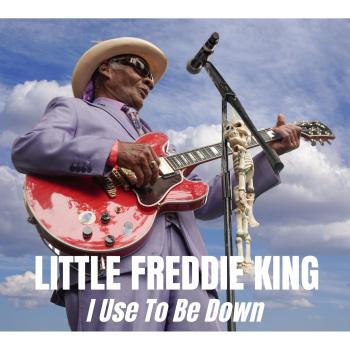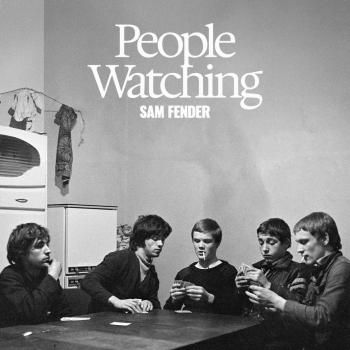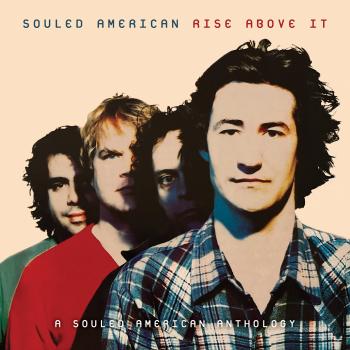
Wild Is The Wind (Remastered) Nina Simone
Album info
Album-Release:
1966
HRA-Release:
14.02.2014
Album including Album cover
I`m sorry!
Dear HIGHRESAUDIO Visitor,
due to territorial constraints and also different releases dates in each country you currently can`t purchase this album. We are updating our release dates twice a week. So, please feel free to check from time-to-time, if the album is available for your country.
We suggest, that you bookmark the album and use our Short List function.
Thank you for your understanding and patience.
Yours sincerely, HIGHRESAUDIO
- 1 I Love Your Lovin' Ways 02:39
- 2 Four Women 04:28
- 3 What More Can I Say? 02:52
- 4 Lilac Wine 04:18
- 5 That's All I Ask 02:33
- 6 Break Down And Let It All Out 02:41
- 7 Why Keep On Breaking My Heart 02:37
- 8 Wild Is The Wind (Live In New York, 1964) 07:00
- 9 Black Is The Color Of My True Love's Hair (Live In New York, 1964) 03:28
- 10 If I Should Lose You 04:00
- 11 Either Way I Lose 02:45
Info for Wild Is The Wind (Remastered)
Disarmingly and relentlessly intimate, Wild Is the Wind, Nina Simone’s sixth Philips recording, comprises eleven tracks that together achieve a compelling consistency in mood, performance, and production. Sympathetic arrangements, restrained piano playing, and rich, closely miked vocals mark this stellar album, which includes Simone’s searing original “Four Women.”
„Nina's own compositions (Four Women) and songs penned by Van McCoy (Break Down and Let It All Out) are among the highlights on this 1966 Philips recording. This album was apparently a bit of a pastiche of leftovers from sessions for Nina Simone's four previous albums on Philips. But you'd never guess from listening; the material is certainly as strong and consistent as it is on her other mid-'60s LPs. As is the case with most of her albums of the time, the selections are almost unnervingly diverse, ranging from jazz ballads to traditional folk tunes ('Black Is the Color of My True Love's Hair') to the near calypso of 'Why Keep on Breaking My Heart' to the somber, almost chilling title track. Highlights are two outstanding pop-soul numbers written by the pre-disco Van McCoy ('Either Way I Lose,' 'Break Down and Let It All Out') and 'Four Women,' a string of searing vignettes about the hardships of four African-American women that ranks as one of Simone's finest compositions.“ (Richie Unterberger)
Nina Simone, vocals, piano
Rudy Stevenson, guitar, flute
Lisle Atkinson, upright bass
Bobby Hamilton, drums
Horace Ott & His Orchestra
Recorded in March and April 1964 and January, October, November 1965 in New York.
Produced by Hal Mooney
Digitally remastered at Universal Mastering Studios-East
Nina Simone
Nina Simone (1933-2003) holds a unique place amongst the great jazz performers of all time. What sets her apart from other jazz masters is not only her captivating and sultry voice and skillful command of the piano, but her aptitude in almost every genre of music there is. She has taken soul, jazz, and pop to new levels, as well as proving herself in blues, gospel, Broadway, folk, classical, and opera. She also performed and recorded many of her own compositions.
Born Eunice Waymon in North Carolina, Simone grew up in a family with eight children. She started out as a classical pianist, but in 1954 the financial necessity of her family led her to take a job in an Atlantic City nightclub. After auditioning for the gig, the owner told her that she could have it, but only if she agreed to sing as well. Thus, Nina ("little one") Simone (French actress Simone Signoret), was born.
In the late 1950s, Simone began recording on a small label, Bethlehem Records. In 1959, she had a Top 20 hit. "I Loves You Porgy," a song from George Gershwin’s musical "Porgy and Bess." This was the only song that Simone recorded in her entire career that made the Top 40. Hits were not a big concern, however. Simone did just fine performing in nightclubs and making albums, most of them live recordings. She recorded nine albums in the early 1960s alone.
In the mid-‘60s, inspired by the Civil Rights Movement, Simone composed several songs, including "Old Jim Crow" and "Mississippi Goddam" which were issued on her first album with Philips (Nina Simone in Concert). "Mississippi Goddam" was written in response to the death of four black children in a church bombing, in 1963. It was her protest songs that best demonstrated Simone’s amazing ability to communicate, deeply and clearly, human emotion, especially those of Black people in the U.S.A. It was around this time that people began referring to Simone as the "High Priestess of Soul," after she put out an album of the same name.
Along with her original songs, Simone chose some diverse covers. Songs like Weill–Brecht’s "Pirate Jenny," "I Put a Spell on You," and "See Line Woman," were among some of the others that Simone transformed into classics. Her experimentation with timing, her use of silence, her low and intense vocals, her impeccable piano playing capabilities, and her inimitable live act, turned every song she sang into a fresh and magnificent Nina Simone creation.
In the late 60s and early 70s, Nina was recording for RCA. An original song, "Young, Gifted & Black" was considered somewhat of a Black national anthem of the time. This song, inspired by Lorraine Hansberry’s play of the same title, was has since been covered by Aretha Franklin and Donny Hathaway. During this brief period of time, Simone was remarkably prolific, releasing nine albums. Despite the quantity and quality of her product, Simone was not particularly well served by RCA.
Later in the decade, Simone’s personal life began to see some trouble. She divorced her husband and manager, Andy Stroud, and became disillusioned by the record industry when she found herself in financial trouble after all the effort she had put forth. Disgusted with show business, as well as with racism in the U.S.A., Simone moved to Barbados in 1974. In the years to come she lived in Liberia, Switzerland, Paris, the Netherlands, and the South of France.
The frequency of her recordings slowed significantly after she left RCA, but in 1978, Simone released Baltimore, for the label CTI, which contained the definitive version of Judy Collins’s "My Father." Since then Simone has recorded several albums, most recently "A Single Woman," a studio album released in 1993. She has written her autobiography, I Put a Spell on You, received an Honorary Doctorate in Music and Humanities, and has continued to perform at festivals and events around the world.
Despite her self imposed exile and her obvious outspoken lack of appreciation for the recording industry, Nina Simone is a legend of incalculable magnitude. Still today she is able to arouse new and young listeners, as well as hold the attention of life-long devoted fans. Nina Simone has burned her soulful, musical wonders on the psyche of jazz lovers everywhere, and has inspired love and compassion in places seemingly bereft of such trying emotions. Rachel F. Newman (Source: Verve Music Group)
This album contains no booklet.





















